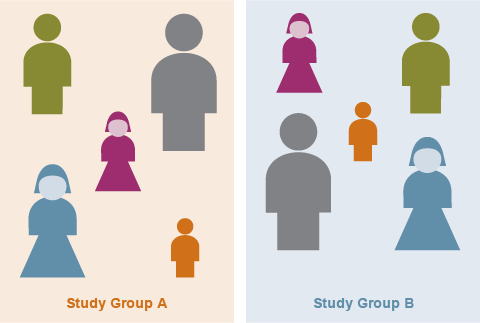Terms You Should Know: Randomization
| Assent | IRB | Randomization |
| Blinding or Masking | Placebo | |
| Informed Consent | Protocol |
Randomization
"Since researchers don't know which treatment is better, this is a way to determine who gets what...like flipping a coin."
Randomization is a fancy way of saying "by chance". It's similar to rolling dice or flipping a coin. It is often the best way that researchers have to end up with study groups that will be similar in age, ethnicity and other characteristics in order to better compare the results at the end of a study.
Picture a bowl filled with the same number of green and blue marbles. You cannot see them but you are going to pick one. Green marbles go to DRUG A, and blue to DRUG B. You can't know which color you'll grab before you do it, so there's no determining beforehand which color might get picked at any time. That way, the children selected into treatment groups remains "random"."What you want to do is try to eliminate as much variability or bias in how you sort people into whether you get the treatment or not..."
Dr. Gail Pearson, Pediatric Cardiologist
If we know who is getting what drug or treatment, we are more likely to make judgments about what is better before we really see the results.
Dr. Gail Pearson, Pediatric Cardiologist

 Previous
Previous




